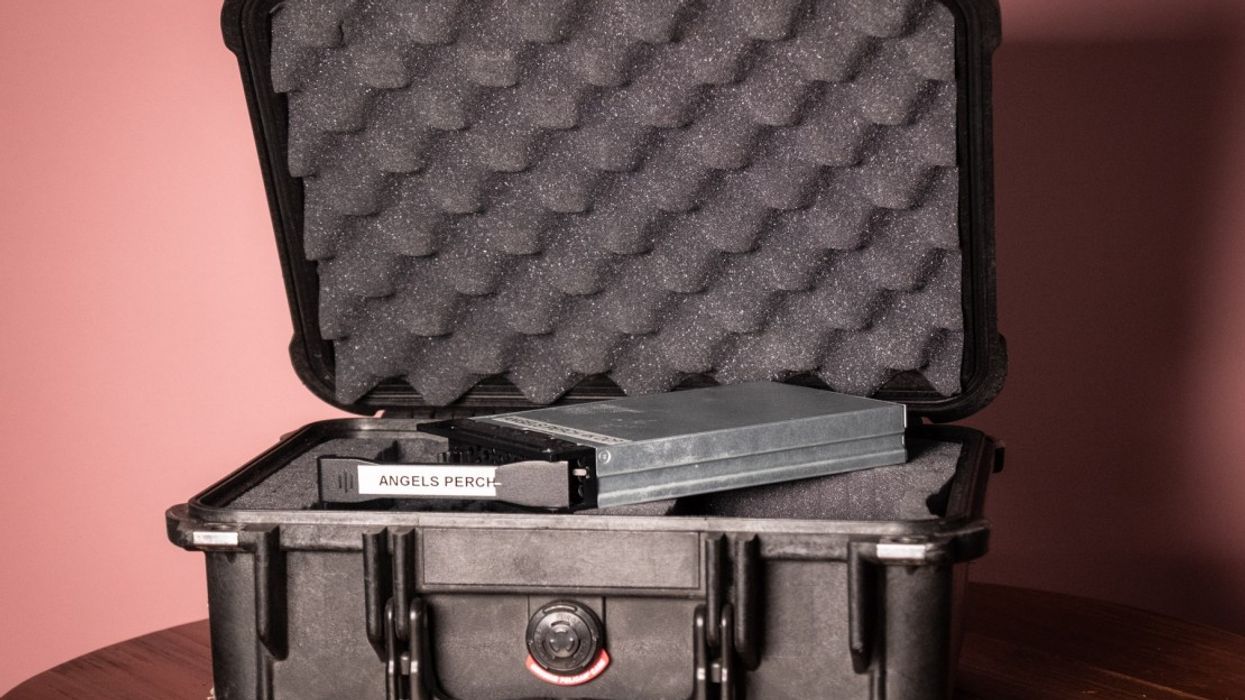DCP Transfer is the Missing Link in DCP Creation
DCP Transfer helps filmmakers ensure their DCP files are formatted properly for theatrical and festival delivery.

A DCP (Digital Cinema Package) is the required technology needed to show your film in theaters. If you're wondering why theaters can't show ProRes or H.264, that's because the system for showing movies in theaters was invented in the 1990s before those technologies existed. It's designed to be highly stable, show content cleanly, and work without constant software updates. Since many movie theaters bought their cinema server in 2006 and haven't updated it since, it's a good thing that the DCP format is very rigid, even though it's been a hassle for filmmakers for its costs and other complications.
We were pretty excited when Resolve 15 arrived with DCP mastering capabilities, including direct authoring of DCPs on the deliver page. We immediately went out and tested it (thank you to Brooklyn's Nighthawk Cinema), and it worked perfectly, with only one slight hiccup.
DCP files are required to be in a very specific format. Instead of "Mac OS Extended Journaled" (otherwise known as HFS+), or the new AFS that we use on Apple systems (or the NTFS or ExFAT of PC systems), they are required to be in a Linux format called Ext2. Yes, "technically" you can be NTFS, but it's better to be safe than sorry and so that means Ext3. Resolve does almost everything you need in order to make your DCP, converting to the DCP color space properly and mastering subtitles. However, it doesn't format hard drives.

There is a solution via the software Paragon, which makes pretty much any "can I make this drive work on this machine" software you can imagine. Due to its booting Apple drives on PC workstations, we've been fans of Paragon for years and have used it several times for making DCPs.
However, Paragon isn't an entertainment company, and so it was exciting when Cinematiq licensed Paragon tech for an app called DCP Transfer. It's targeted at folks like us, out there making movies, trying to get them seen, and need slightly more functionality than what the straight up Paragon install offered.

In addition to being able to format drives to Ext3 (the bare minimum functionality), it also allows for verifying and copying DCPs. Why does this matter? Remember we said how many movie theaters installed its DCP server once and never updated it again?
DCP servers are finicky. Many do not use the "subtitle" feature and request movies with burned in subs. Over the years, I've sent in a DCP with a Blu-Ray backup in case the DCP didn't load, and I've gotten calls from theaters in rural West Virginia—where FedEx won't do overnight shipping—thatcouldn't ingest the movie and only had a DVD player as backup. It's terrifying.

DCP Transfer calms some of those fears. It's not going to promise that every festival will screen your DCP properly—somewhere there is still a 1998 era DCP server running Clinton-era software with all sorts of crazy hiccups—but the peace of mind you get from verifying the file structure of a DCP is huge.
Since a DCP is basically a bunch of files (and an Asset Map giving directions to those files), it can experience issues when making a copy. Copying with DCP Transfer is a way to ensure those issues don't arise. It also offers metadata inspection, and so if the label has fallen off your DCP, you can inspect it for format (is it the 2K or the 4K?), framerate, title and more.
If there's one hiccup—and this is also tricky with Paragon—it's that it has slower write speeds. Since Ext3 isn't natively built into OSX, there is some translation going on that slows down writing to the drive. In our test USB 3 drive, which writes more than 150MB/s when formatted HFS+, we only got about 85 MB/s write in Ext3. Prepare for a longer file transfer. The slowdown isn't nearly as bad on the read end, with 250MB/s read in HFS+ only slowing down to about 220MB/s in Ext3.
If you're planning on using Resolve to master your DCP, DCP Transfer is a great option to format the drive. DCP Transfer is available as a subscription, or, for the true indie with one project to knock out, a one-month license. For more information, check out the Cinematiq site.
Tech Specs:
- Ext2 Drive Formating
- DCP Copying
- DCP Verification
- Metadata inspection.













